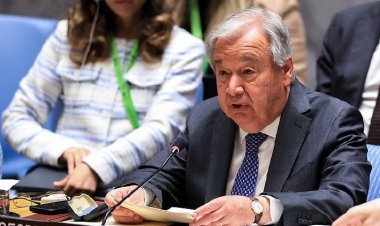Vice premier urges international companies to enhance collaboration with China
Chinese Vice Premier He Lifeng recently engaged with leaders from major global financial institutions, underscoring China's dedication to enhancing openness in the financial industry and inviting foreign companies to strengthen their collaboration with China.

During these discussions, He conveyed China's openness to welcoming more foreign financial entities and long-term capital to invest and operate within the country, positioning these opportunities as avenues for collaboration in China's growth.
He emphasized that China is committed to further reforming its financial system and gradually increasing the institutional openness of its financial sector. This approach aims to provide greater ease for foreign companies conducting business in China.
Executives from these financial firms expressed optimism about the prospects for China's economy and financial markets, showing a strong interest in expanding their presence and enhancing economic and trade cooperation within the region.
According to CMG financial commentator Liu Ge, these recent meetings clearly signal an encouragement for global long-term capital to increase investments in China, which helps stabilize market expectations.
In addition, Chen Hongbin, a researcher at Tsinghua University, pointed out that China holds significant allure for both growth and value investors. He highlighted that as a leader in global innovation and the largest manufacturer with a comprehensive industrial system, China offers unparalleled opportunities for financial institutions.
This year, China's central bank has upheld a supportive monetary policy, implementing several measures, including two cuts to reserve requirements and three reductions in benchmark interest rates. Additionally, targeted re-loans amounting to 900 billion yuan have been allocated to support technological innovation, affordable housing, and small businesses.
Efforts to stabilize the yuan exchange rate and improve foreign exchange reserve management have also been prioritized.
Zeng Gang, director of the Shanghai Financial and Development Laboratory, noted that since the start of the year, regulators have significantly enhanced countercyclical monetary policies. He stated that these measures have broadened the toolkit for regulating the macroeconomy and financial markets while promoting the sustainable development of capital markets.
Tian Lihui from Nankai University observed that the introduction of new tools, such as swap facilities and re-loans for stock buybacks, has positively affected market sentiment and improved societal expectations.
China’s bond market, which is now the second-largest globally, continues to draw foreign investment. By the end of October 2024, foreign institutions are reported to have held 4.25 trillion yuan in bonds, with access facilitated through direct investments and mechanisms like the Bond Connect.
Furthermore, Wang Lei, deputy director of the State Administration of Foreign Exchange, underlined ongoing initiatives to support the issuance of renminbi bonds by foreign entities and to streamline exchange management regulations, thereby enhancing the attractiveness of renminbi-denominated assets to international investors.
Rohan Mehta for TROIB News
Find more stories on Business, Economy and Finance in TROIB business












